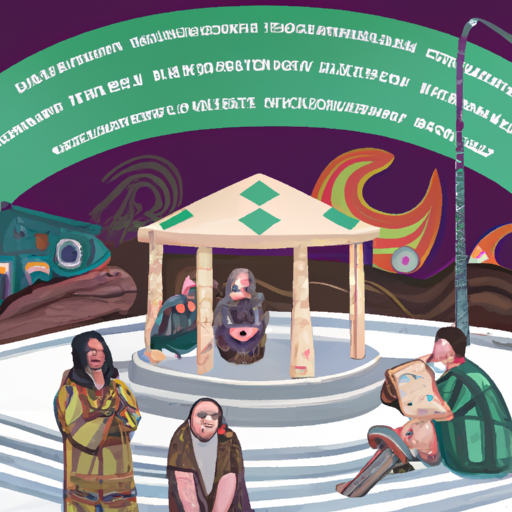The Intersections of Indigenous Sovereignty, Cannabis Dispensaries, and the Opioid Crisis
In the persisting fight against the opioid crisis that has gripped Canada, the emergence of alternative approaches cannot be ignored. The intricacies of these new strategies have renewed debates over jurisdiction, equitable access, and indigenous rights. In a recent article from Vancouver Is Awesome, “Nova Scotia judge rejects constitutional arguments for Indigenous cannabis shops”, these issues are examined in the light of cannabis use and racial discrepancies. It’s a conversation that’s not just about opioids, but broader questions of justice, community, and sovereignty.
Considering Cannabis as an Answer
Indigenous leaders in Nova Scotia have proposed cannabis shops as a means of managing pain and weaning opioid users off these detrimental drugs. Citing medicinal benefits of cannabis, they argue that greater access could have substantial impacts on vulnerable populations, potentially reducing opioid dependencies and related fallout such as homelessness and crime.
Rejection of Constitutional Assertions
However, resistance has met these ideas. A Nova Scotia judge has rejected the constitutional arguments supporting Indigenous right to self-regulate cannabis distribution. The decision highlights conflicts between current drug enforcement policies and broader issues of indigenous rights. It underscores a lack of mutual understanding and respect for Indigenous sovereignty.
Evolving Notions of Opioid Crisis Management
While the narrative of the opioid crisis traditionally focuses on criminal justice responses and distribution of naloxone kits, alternative ways of managing the crisis are emerging. These involve reevaluating the frameworks of drug regulation and acknowledging the place of indigenous communities in setting their own rules.
Key Points:
- Indigenous leaders propose cannabis dispensaries as a solution to the opioid crisis, citing its therapeutic properties for pain management and potential to reduce opioid dependencies.
- The proposal for these Indigenous-run dispensaries has been rejected on the basis of current drug policy – a decision which has ignited discussions on indigenous rights.
- The opioid crisis not only entails a public health emergency but also underscores broader issues of social justice, community engagement, and indigenous sovereignty.
Final Thoughts: Towards Progressive Opioid Crisis Management
In the face of the intensifying opioid crisis, fresh perspectives and radical collaboration may be our most promising tools. Policies and strategies should encourage understanding and respect for indigenous knowledge and sovereignty. We must continually reassess how our approaches can be both culturally sensitive and responsive to the changing landscape of opioid use.
While cannabis as a hinterland strategy in the opioid crisis may still be a moot point, it brings to focus the pivotal connection between health crises and social justice issues. The refutation of the indigenous community’s right to self-regulate cannabis is reflective of the broader systemic barriers they face, extending beyond the realm of drug regulation to the opioid class action and general societal disparities.
The need to address the opioid crisis must not overshadow the need to advocate for racial equity, queer justice, and poverty abolition. It’s a complicated web of interconnected issues that policymakers should be keen to untangle.
In conclusion, managing the opioid crisis involves addressing the root causes of addiction in a disaggregated, multiple-approach method. Indigenous sovereignty, equitable access to pain management, and the reconsideration of traditional laws and restrictions are key components of this complex puzzle.
By putting these pieces together, we can create a broader, more effective, and more compassionate response to the opioid crisis – a response that not only helps those affected by opioid addiction but also supports the ongoing fight for justice in all its forms.
